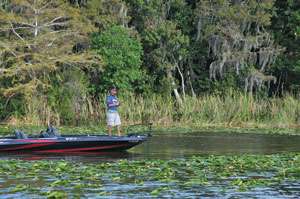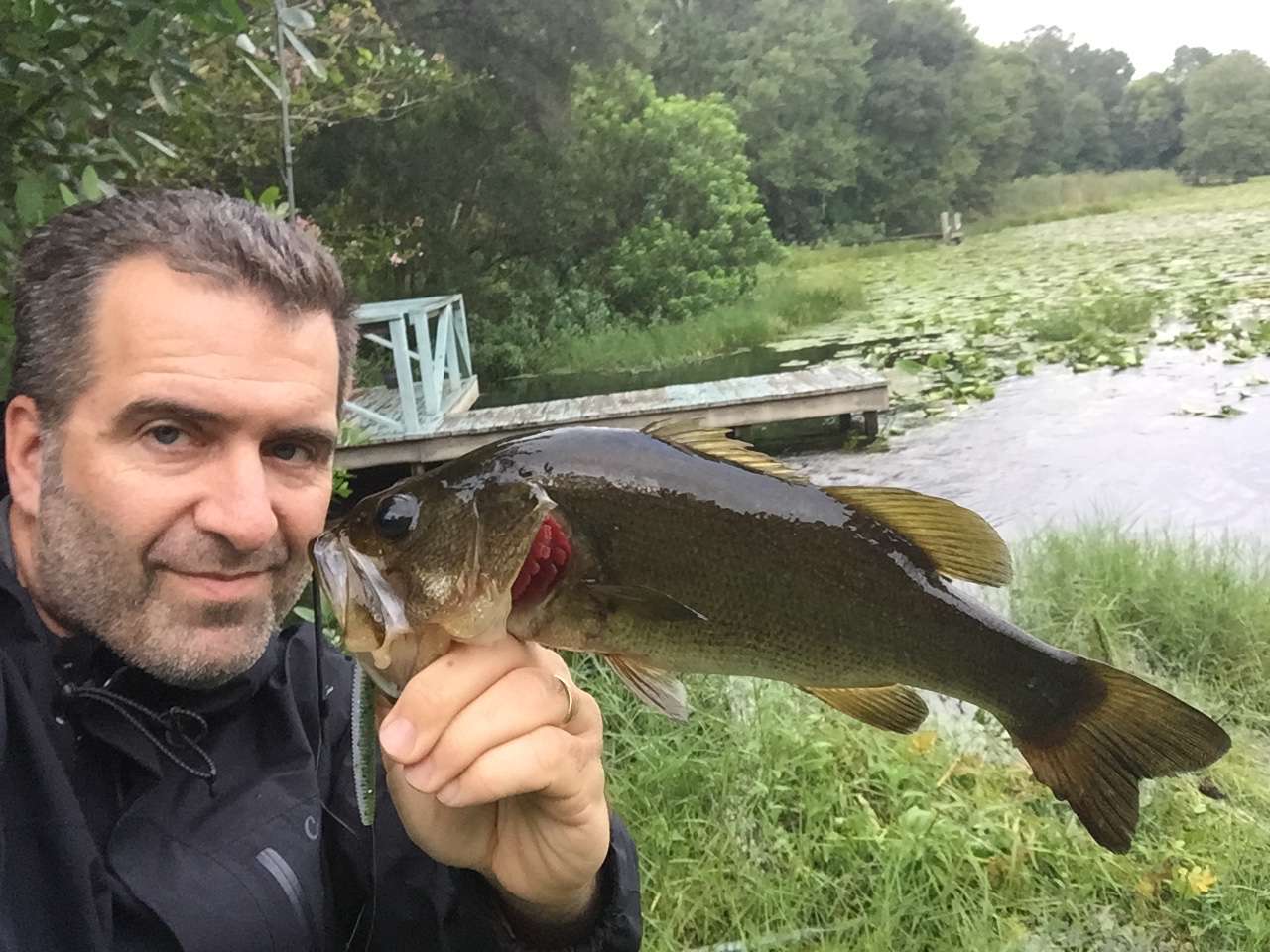
TALLAHASSEE, Fla. — Ask 10 anglers the best way to catch a Florida bass, and you’ll get at least 10 answers. The same math applies to opinions on the state’s black bass management; but while anglers are adamantly proactive about the former, they tend to be less so with the latter.
The Florida Fish and Wildlife Conservation Commission said it’s time to change that. The agency tasked with managing the Sunshine State’s aquatic resources has launched a major effort to collect input from the angling public. Reason: The FWC is formulating a new Black Bass Management Plan to run through 2030 and, while a coordinated effort between governmental agencies will be essential, the thoughts, questions, ideas and suggestions of folks who bend the rods will play a key role in this undertaking.
The fact is that several forces have been subtly eroding Florida’s stellar freshwater fishing industry — an economic engine worth some $1.5 billion to the state’s economy.
Florida still lays claim to its “Fishing Capital of the World” title, but it’s not like the good old days. Declining catches of trophy fish testify to that truth. Urbanization and population growth threaten lakes, rivers and wetlands, while climate change bears an uncertain impact on freshwater habitat and black bass fisheries.
Add to this the less-than-rare occurrence of anglers killing trophy sized bass — despite an overwhelming preference for catch and release — and the FWC has recognized the need for a new approach to black bass management. In the proverbial nutshell, the Black Bass Management Plan’s objective is to manage Florida’s freshwater resources with methods that yield higher quality fisheries with increased opportunities for anglers to pursue trophy bass.
Addressing Florida largemouth, Suwannee, shoal and spotted bass, the plan is currently in a formulation stage, and the FWC has posted a draft that summarizes key points and direction online (www.myfwc.com/fishing). In this initial version, the FWC lists the areas of management need as habitat enhancement and protection, aquatic plant management, angler effort and harvest, and stocking and genetic conservation. But this list is just a start.
Through outdoor shows and public outreach programs, the FWC encourages anyone interested in the future of Florida’s black bass management to offer their input through an online survey on the FWC website. From guides to tackle store owners, tournament pros to weekend warriors, doing so provides important grassroots perspective to balance the scientific data.
We’re seeking to more effectively engage our stakeholders and try to do things that they want us to do,” said Dale Jones, FWC section leader for freshwater fisheries management. “We’re looking at all of the black bass species to make sure our management carries us into the next 20 years.
We have a lot of ideas in the initial proposal. Our internal team will take information from the surveys and (other sources of) stakeholder input and work to define the objectives and determine how we can implement these ideas. We’re at the rudimentary edges of this and we’ll be working hard to develop and maintain our interaction with the stakeholders.”
Scheduled for finalization by December 2010, the plan debuted at the first annual open meeting of the Florida Freshwater Fishing Coalition (FLFFC) in October 2009. Formed in March 2009, the FLFFC unifies various freshwater user groups, as well as individual anglers, and represents them in Florida government.
FLFFC Secretary David Douglass guides on Central Florida lakes and hears plenty of opinions on how the state’s bass resources should be managed. Douglass stresses the importance of recreational anglers turning any complaints and criticisms into constructive input. The FLFFC, he said, offers an organized platform for doing so.
We’d like to see the anglers get more involved with the state and local governments,” Douglass said. “There’s never been anyone representing the freshwater angler in the state of Florida, and until the anglers unite, their voices won’t be heard.”
High on the list of FLFFC concerns, Douglass said, is the issue of invasive non-native plant species — specifically hydrilla. In a classic case of budget-driven overkill, the state’s current strategy of large-scale chemical treatments seeks to wipe out all of a lake’s hydrilla, but anglers eschew this all-or-nothing approach.
“You’re not going to have an effective black bass management plan unless the state has a more effective management of hydrilla,” Douglass said.
The FLFFC holds that more frequent small-scale treatments should replace the large-scale treatments with the goal of minimizing hydrilla’s lake-choking expansion, while preserving this key habitat for spawning and summer cover. Trading the eradication strategy with adaptive management strategies, Douglass said, could allow hydrilla to exist in stakeholder-determined areas.
Douglass said it will be hard to implement an effective management plan consistently across Florida’s many freshwater bodies without increased FWC funding. “We’d like to see a greater budget for the FWC for lake management. The FWC might be able to do more if they had a bigger budget, but I believe [the plan] is a long way away from being successful.”
Such concerns and suggestions will help mold the FWC’s Black Bass Management Plan and shape the future of Florida freshwater fishing. For more on the FLFFC, visit www.flffc.org.

